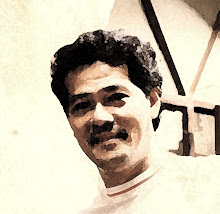While on repat leave, my nephews and nieces were always having clean fun jokes of my age, and that I should now get a senior citizen card to avail all the special privileges and benefits granted to elderly citizens, such as fare discounts, health care, etc. They would always end up looking at each other and laughed their hearts out loud. Hey... hey... hey... come on guys... I am not that old! Am only ... ty-two! The truth is, I am still young. They just love to tease me because I look older for my age.
Why do people become more fearful with the approach of age? One reason is that we live in a society that glorifies youth. Although middle-aged people in our society may be respected, this respect can be threatened by an arbitrary retirement age. While other factors may be at work, the approach of old age adds to anxiety during middle life, and perhaps makes people feel old sooner.
Getting old seems remote to most young people. Even people of sixty-five who are active and healthy tend to think of themselves as middle aged rather than old, and often insist that you are as young as you feel. But a person of fifty who is in poor health my feel very old.
We put off thinking about growing old. Yet reminders of old age are present from childhood. When young, we may have contact with an aging grandparent. Later we may be responsible for the physical and emotional needs of aging parents. Our experiences with aging friends and relatives will influence our own experiences in later years.
Being old is an individual matter. What people make of old age is influenced by the health and the viewpoint they bring to it. Cultural attitudes are important, also. Most cultures respect the aged.





